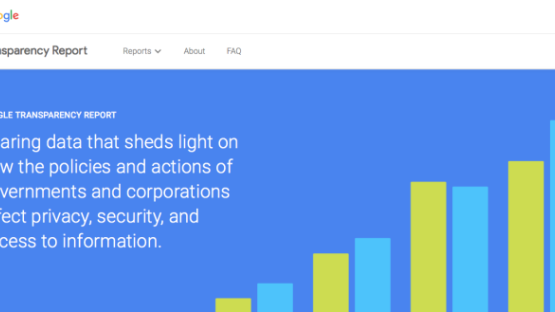Google Transparency Report for second half of 2012 shows European government attempts to access private data at an all-time high

Google's latest Transparency Report, released at 3pm GMT this afternoon, shows that requests by European governments for the browsing history, email communications, documents and IP addresses of Google's users have skyrocketed since the Transparency Report was launched three years ago. Countries in the European Union made 7,254 requests about 9,240 users or accounts between July and December 2012, averaging over 1,200 requests a month. This represents over a third of all requests made by governments worldwide in this time period, and a 100% increase over the past three years. Overall, government requests to Google have increased by 70% in the past three years.
The figures also suggest that Google is denying a very high proportion of requests for user data from European countries. Italy, France, Spain and Germany all had less than half of their requests fully or partially fulfilled, suggesting that over 50% were disproportionately broad in scope, unlawful or submitted incorrectly. Just 17% of user data requests from the Polish government were fulfilled.
Carly Nyst, Privacy International's Head of International Advocacy, said:
The information we hand over to companies like Google paints a detailed picture of who we are - from our political and religious views to our friendships, associations and locations. This information therefore merits the highest degree of privacy and security, and should only be accessed by third parties under exceptional circumstances. Governments must stop treating the user data held by corporations as a treasure trove of information they can mine whenever they please, with little or no judicial authorisation.
Google's Transparency Report is a welcome example of slowly improving corporate accountability in this area, but should also serve to remind individuals that any information they hand over to companies like Google, Facebook and Twitter is highly vulnerable to government intrusion.
The alarming statistics in this latest Transparency Report serve as a reminder of the need for stronger national and regional privacy protections in relation to online communications. To this end, Privacy International, together with a coalition of organisations including the Electronic Frontier Foundation, will soon be publishing a set of International Principles on Communications Surveillance and Human Rights. We hope these principles will offer guidance to governments about the standards and safeguards that must be put in place to safeguard the right to privacy online."